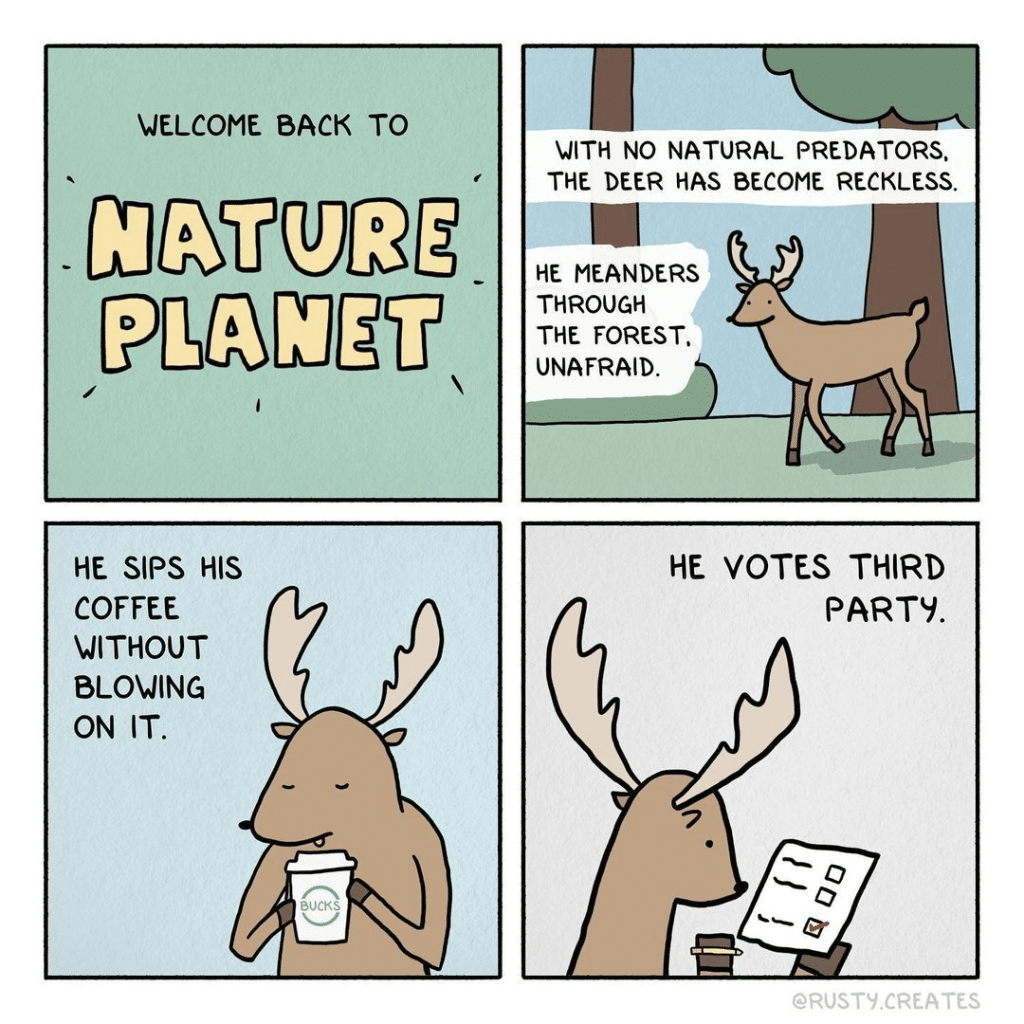this post was submitted on 18 Nov 2024
818 points (89.0% liked)
Comic Strips
14571 readers
1433 users here now
Comic Strips is a community for those who love comic stories.
The rules are simple:
- The post can be a single image, an image gallery, or a link to a specific comic hosted on another site (the author's website, for instance).
- The comic must be a complete story.
- If it is an external link, it must be to a specific story, not to the root of the site.
- You may post comics from others or your own.
- If you are posting a comic of your own, a maximum of one per week is allowed (I know, your comics are great, but this rule helps avoid spam).
- The comic can be in any language, but if it's not in English, OP must include an English translation in the post's 'body' field (note: you don't need to select a specific language when posting a comic).
- Politeness.
- Adult content is not allowed. This community aims to be fun for people of all ages.
Web of links
- [email protected]: "I use Arch btw"
- [email protected]: memes (you don't say!)
founded 2 years ago
MODERATORS
you are viewing a single comment's thread
view the rest of the comments
view the rest of the comments

Thanks for your input, but it is not a question about who benefits or what a person aught to do, but a simple logical conclusion:
For simplicities’ sake, let's say there are 10 people voting in an election with 2 parties. Each party has 4 unwavering loyalists and the remaining 2 people's votes depend on current events/issues. The two parties mainly take turns in government due to these swing voters.
Now enter a third party. Party 3 addresses issues that are somewhat relevant to voters of party 2 and mostly uninteresting to voters of party 1. In the next election, some voters will most likely drift from party 2 to party 3:
Splitting votes between too somewhat similar parties guarantees a win for the opposite party on the spectrum. Coalitions are not possible under first past the post, so party 2 and 3 teaming up to dethrone party 1 is not an option. This continues until either another party on the opposite end of the spectrum joins the race and diminishes the votes for party 1 or one of party 2 or 3 absorbs the other.
Therefore, it is in the voter's best interest to vote strategically against what they don't want and not for what they do want.